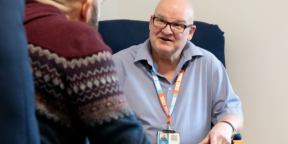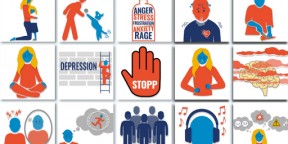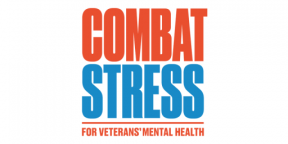Afghanistan
Afghanistan withdrawal news
The news coverage regarding the take over of Afghanistan by the Taliban is significantly affecting our Armed Forces and veteran community.
It’s vital that everyone recognises the impact the situation in Afghanistan could have on the mental health of veterans across the UK. Since Monday, we have seen an increase in calls to our Helpline and many veterans have told us that they feel let down, angry and frustrated.
Recent coverage may be triggering difficult thoughts and feelings, and could be re-traumatising some veterans or worsening conditions like PTSD. Veterans’ families will also be impacted by the news from Afghanistan as they do what they can to support their loved ones who may be suffering the effects of trauma or as they are reminded of the loss of a loved one, killed in the conflict.
To all the UK veterans and their families affected by current events in Afghanistan, we stand with you and we are here to support you.
Support for veterans
We understand that, as a result of the news surrounding Afghanistan, many military personnel – past and present - may be feeling on edge right now. It’s natural to experience all sorts of emotions, and some may feel overwhelming. However, if your threat dial is up, you feel on high alert or ‘sparking’, or you notice your anxiety levels feel high right now, this can have a negative impact on your mental health.
We encourage all veterans, particularly those who served in Afghanistan, to call our 24-hour Helpline if their mental health has been impacted by what is happening in Afghanistan.
You can call our free, confidential Helpline on 0800 138 1619.
If you are in a an emergency situation and need urgent support please call the emergency services via 999 or the Samaritans via 116 123.
Moral Injury
Some veterans now feel the conflict in Afghanistan was futile and there is a serious concern that this could lead to moral injuries.
Moral injury can occur when something happens that completely contradicts a person's well-held personal, moral and ethical beliefs. Through no fault of their own, veterans can develop moral injuries alongside PTSD after witnessing or being unable to prevent acts that go against what they believe is right.
We know it’s hard to consider the positives achieved over the last two decades when there is so much fear and uncertainty about the future of Afghanistan, however we remind all veterans and those serving of the positive outcomes of their time in Afghanistan.
UK servicemen and women helped bring peace and relative stability to Afghanistan for almost 20 years. Girls were able to study and attend school, women were able to take positions of leadership and authority.
We implore both current and former servicemen and women to talk about their feelings and seek help if necessary.
It's good to talk
If you're a veteran experiencing feelings of guilt, remorse, shame and anger, or if you are being persistently self-critical, feeling unworthy, unforgiveable or “damaged”, you are not alone. These thoughts and feelings could be a sign of moral injury resulting from things you have experienced or witnessed.
Help is available. We specialise in veterans’ complex mental health needs resulting from military trauma and our Helpline is available 24-hours a day for free, confidential advice and guidance. Please don't struggle in silence.
If you are in a an emergency situation and need urgent support please call the emergency services via 999 or the Samaritans via 116 123.
Advice for coping with news of Afghanistan
To help you cope with the news of Afghanistan, we've put together six simple tips that you may find useful at this time.
- Acknowledge the situation and how you feel about it, even if the emotions are challenging or feel overwhelming.
- Talk about how you're feeling with someone you trust.
- Reach out for professional support if you need it - our Helpline is always available 24/7 on 0800 138 1619 The team are free to contact and available to provide confidential advice and support. Please note, we are currently experiencing longer wait times than usual. Please be assured we will get to your call. If you prefer, you can text 07537 173683 (standard charges may apply for texts) or email helpline@combatstress.org.uk
- We also have a variety of online self-help guides that cover a range of mental health difficulties including PTSD, Anxiety, Anger and Depression. All these guides can be found at https://selfhelp.combatstress.org.uk
- Practise self-care and put your wellbeing first – we have a range of holistic self-care tips, which you can find at https://combatstress.org.uk/our-top-tips-reduce-anxiety while these tips were created to support you during COVID-19, they are just as helpful during any difficult situation.
- Look out for those around you who might be struggling too.
Self-help
Self-help Online
Developed by the clinical experts at Combat Stress, these resources aim to provide guidance and support to former military personnel experiencing mental health issues.
Support us
Now more than ever veterans need us and we need you. Find out how you can help us to continue to support veterans.



